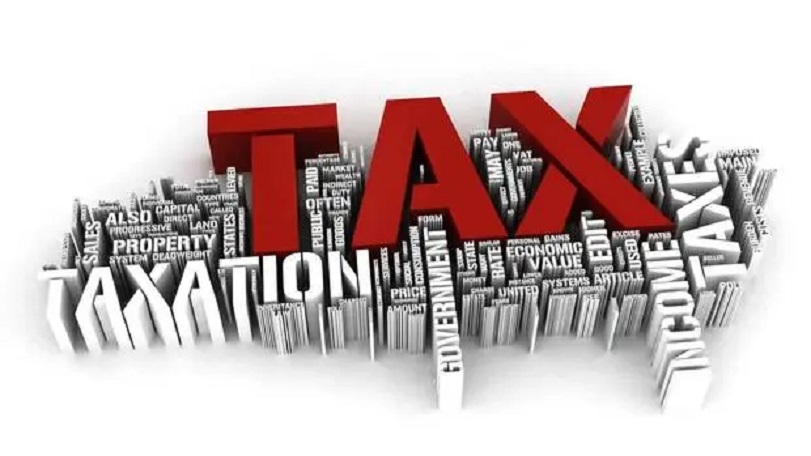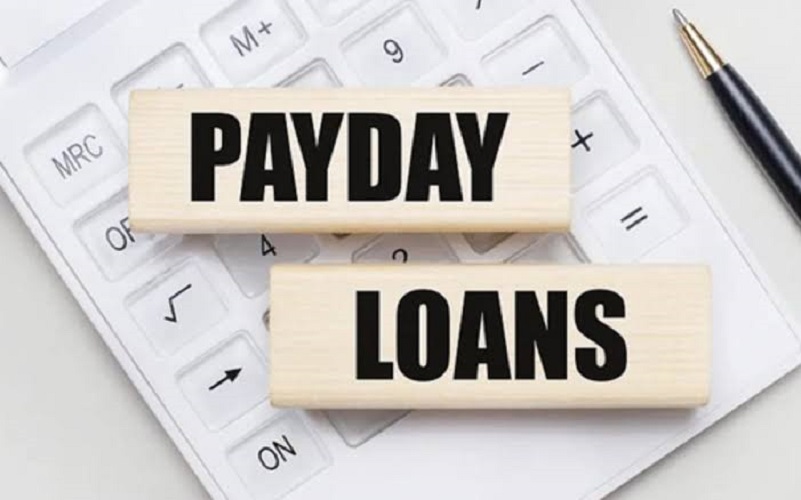Oil Prices up as Market Weighs Direct US Involvement in Iran-Israel Rift | Business Post Nigeria
Published
6 minutes ago
on
19/06/2025

The Federal Inland Revenue Service (FIRS) has announced the extension of tax office operations to weekends for June.
The Chairman of the agency, Mr Zacch Adedeji, gave the directive in a statement issued by his Special Adviser on Media, Mr Dare Adekanmbi, who explained that this is part of Mr Adedeji’s commitment to matching the agency’s customer-centric policy with tangible action.
“With the directive, tax offices are expected to open for business from 10:00 am to 4:00 pm on Saturdays and 12:00 noon to 4:00 pm on Sundays throughout the month of June,” he said.
“The weekend service, which started on June 14, will end on Sunday, June 29.
“It is aimed at helping companies that are mandated by law to file their tax returns by the end of the month meet up with the deadline,” he explained.
The statement said that the coordinating directors of Large Taxpayers Group, Government and Medium Taxpayers Group, as well as Emerging Taxpayers Group had conveyed the decision of the management to all staff in the tax offices.
“As you are aware, the month of June marks the peak of the annual Companies Income Tax (CIT) filling season.
“Many taxpayers which financial year ends December 31, are expected to file their tax returns by June 30,” the agency stated.
According to the statement, the FIRS chairman, on assumption of office, reorganised tax operations for ease of tax payment. This has led the transformation of the agency from merely being a tax-collecting entity to a service-providing body.
Published
13 minutes ago
on
19/06/2025

The Nigerian Exchange (NGX) Limited regained 1.63 per cent on Wednesday as banks began to update the investing community on their plans to exit the forbearance regime of the Central Bank of Nigeria (CBN).
A few days ago, the banking sector regulator suspended the payment of dividend to shareholders, issuance of bonuses to directors and investment in foreign subsidiaries until affected financial institutions cleaned up their balance sheet.
The prospect of not receiving dividends triggered sell-offs in banking equities and other Nigerian stocks on Monday and Tuesday, but after banks began to assure shareholders of exiting the regime this year, tension started to calm.
observed that apart from the consumer goods index, which depreciated by 0.16 per cent, every other sector closed higher at midweek.
The energy space grew by 7.49 per cent, the commodity counter appreciated by 5.63 per cent, the banking sector rose by 3.25 per cent, the insurance industry went up by 2.02 per cent, and the industrial goods space improved by 0.09 per cent.
As a result, the All-Share Index (ASI) gained 1,876.71 points to settle at 116,786.87 points compared with Tuesday’s 114,910.16 points and the market capitalisation soared by N1.184 trillion to N73.681 trillion from N72.497 trillion.
A total of 640.1 million shares valued at N26.0 billion exchanged hands in 19,727 deals during the session versus the 721.8 million shares worth N22.0 billion transacted in 22,100 deals a day earlier, indicating a decline in the trading volume and number of deals by 11.32 per cent and 10.74 per cent, respectively, and a rise in the trading value by 18.18 per cent.
Zenith Bank topped the activity chart on Wednesday with 149.9 million stocks sold for N7.2 billion, Access Holdings traded 48.6 million equities worth N1.0 billion, UBA transacted 43.0 million shares valued at N1.5 billion, Nigerian Breweries exchanged 37.7 million stocks for N2.2 billion, and Fidelity Bank traded 30.8 million equities worth N568.5 million.
The biggest price gainer for the day was NEM Insurance with a 10.00 per cent growth to sell for N16.50, Beta Glass firmed up by 9.99 per cent to N250.95, Seplat Energy appreciated by 9.78 per cent to N5,450.00, Thomas Wyatt grew by 9.73 per cent to N2.03, and Linkage Assurance increased by 9.56 per cent to N1.49.
Eterna suffered the heaviest loss after it crumbled by 10.00 per cent to N38.70, Secure Electronic Technology dropped 9.68 per cent to trade at 56 Kobo, Legend Internet lost 9.66 per cent to quote at N6.55, FTN Cocoa declined by 6.07 per cent to N2.63, and Guinea Insurance slipped by 5.00 per cent to 76 Kobo.
At the close of transactions, Customs Street recorded 38 price gainers and 30 price losers, implying a positive market breadth index and strong investor sentiment.
Published
12 hours ago
on
18/06/2025

The federal government is considering the integration of National Identification Number (NIN) and credit scores of Nigerians to make borrowing seamless.
The Managing Director of the Nigerian Consumer Credit Corporation (CREDICORP), Mr Uzoma Nwagba, disclosed this in Abuja on Tuesday.
He explained that linking citizens’ credit scores to NIN would create a robust database of every Nigerian’s credit history, ensuring every citizen is accurately scored based on their borrowing and repayment behaviour.
“We aim to tie consumer credit to the purchase of locally manufactured goods. That way, we support local producers, drive demand, and create jobs—ultimately building a sustainable economy,” Mr Nwagba informed newsmen, noting that this would consolidate credit information across all financial institutions, including banks, FinTechs, and microfinance outfits, into a centralised national credit bureau.
“This is a fundamental shift in how credit works in Nigeria. Your NIN will now serve as the anchor for your credit profile. Whether you borrowed from a commercial bank, a microfinance institution, or a digital lender, that data will now be traceable and carry real consequences,” he stated.
Mr Nwagba said the days of loan evasion are fast drawing to a close, as the new system will enforce strict accountability.
“If you default on your loan, it could affect your ability to renew your passport, your driver’s license, or even rent a house. There will be no hiding place,” he stressed.
“More importantly, consequences for defaulters will be structured and deterrent, but not predatory. We are building a system that encourages responsible borrowing and rewards financial discipline,” he added, noting that the effort will also incorporate financial and non-financial data to generate a comprehensive credit scoring algorithm for every Nigerian adult.
“The ultimate goal is for everyone to have a credit score. This is not optional. We are creating a structure where your access to economic opportunities is directly tied to your financial behaviour,” he said.
“The goal is to improve the quality of life. This is President Tinubu’s vision—to give Nigerians access to resources that can uplift their living conditions. The second is to address corruption. Many civil servants and young professionals turn to unethical practices because they lack access to capital to meet life’s basic demands.
He called on all financial institutions to commit to the national credit framework, warning that the magnitude of the country’s credit gap—estimated at N183 trillion—requires full private sector participation.
“No government in the world can provide that kind of money. Financial institutions must step up. With the right infrastructure and transparency, lenders will be more confident, interest rates will drop, and Nigerians will finally have access to affordable credit,” he urged.











